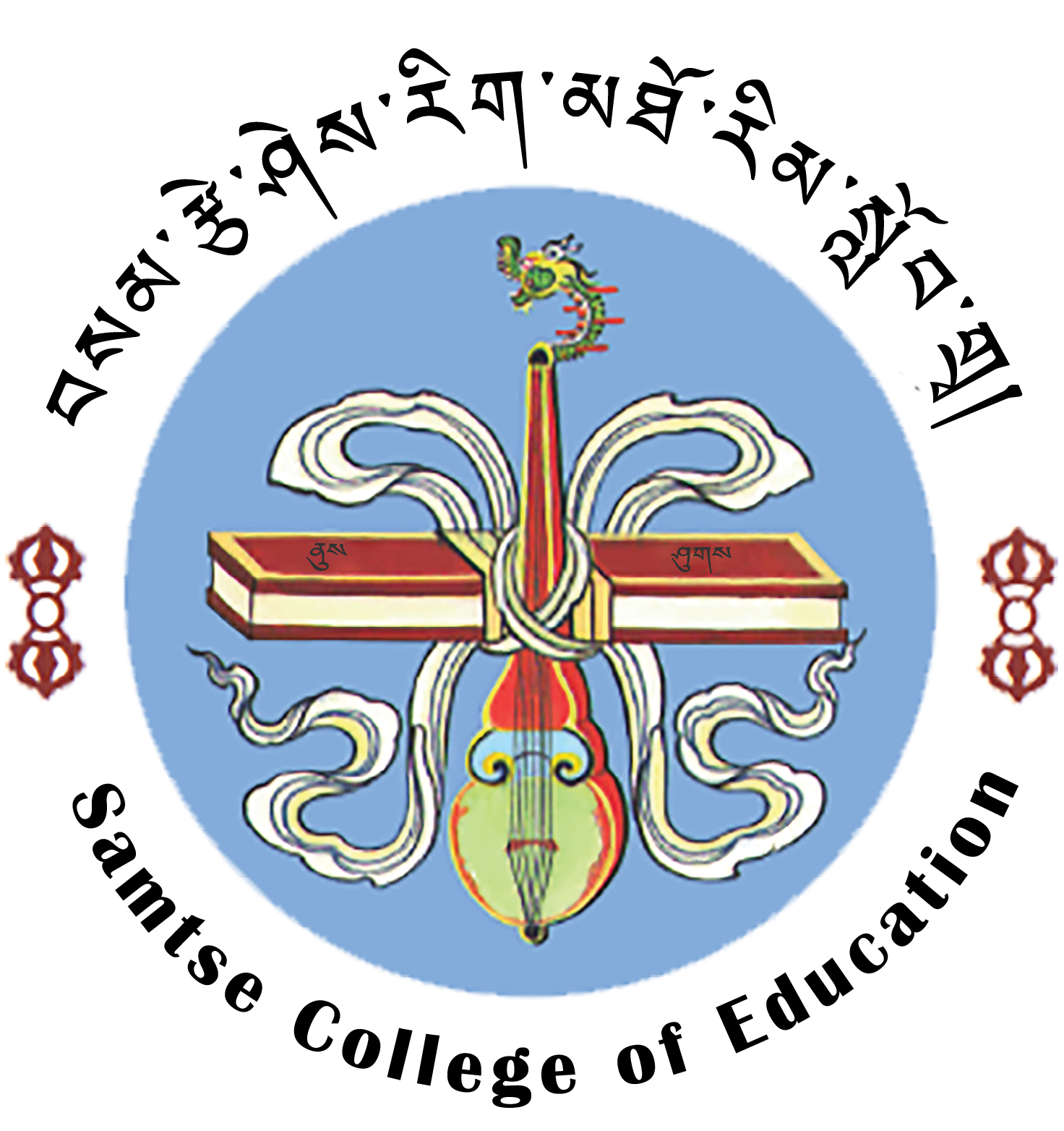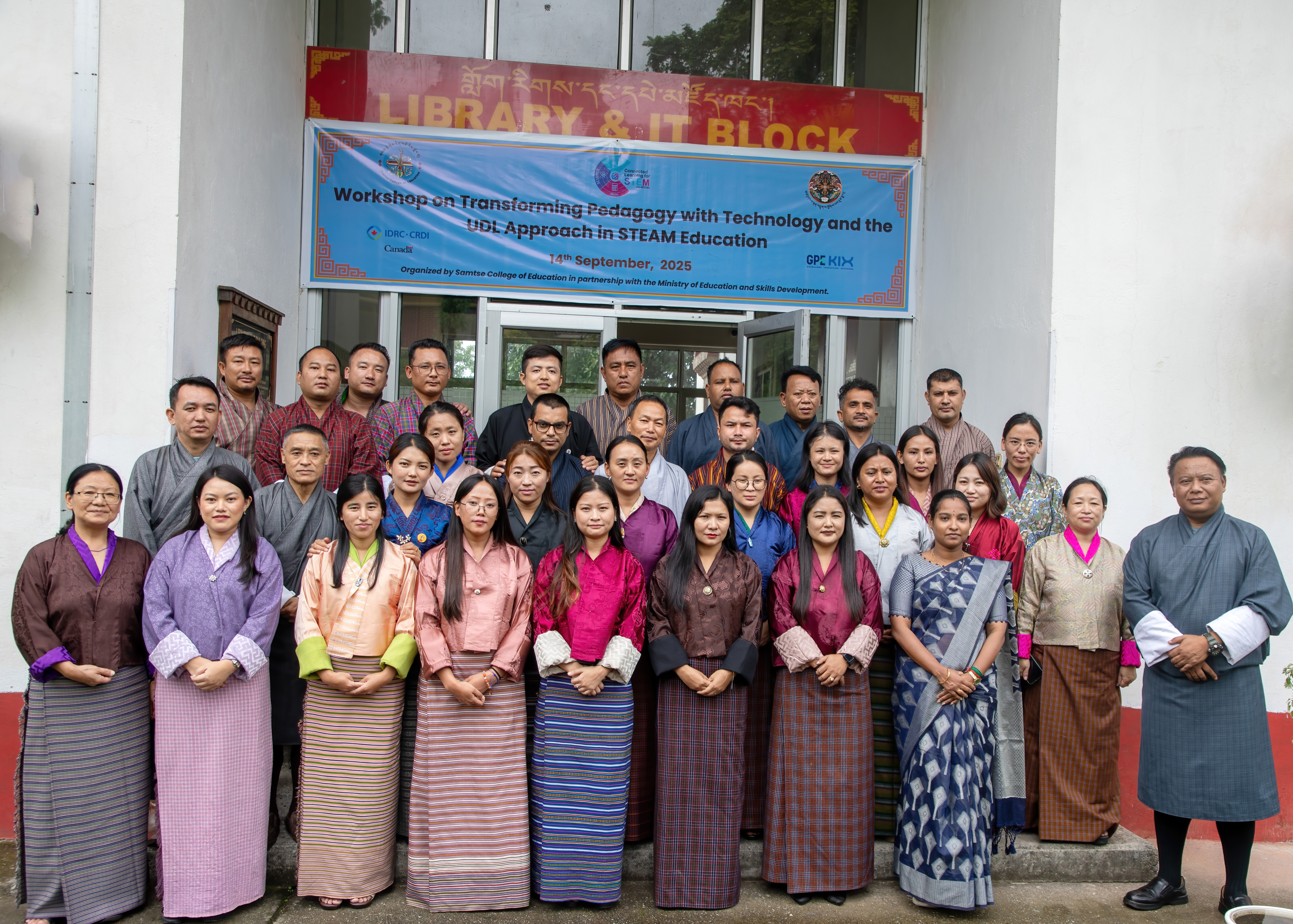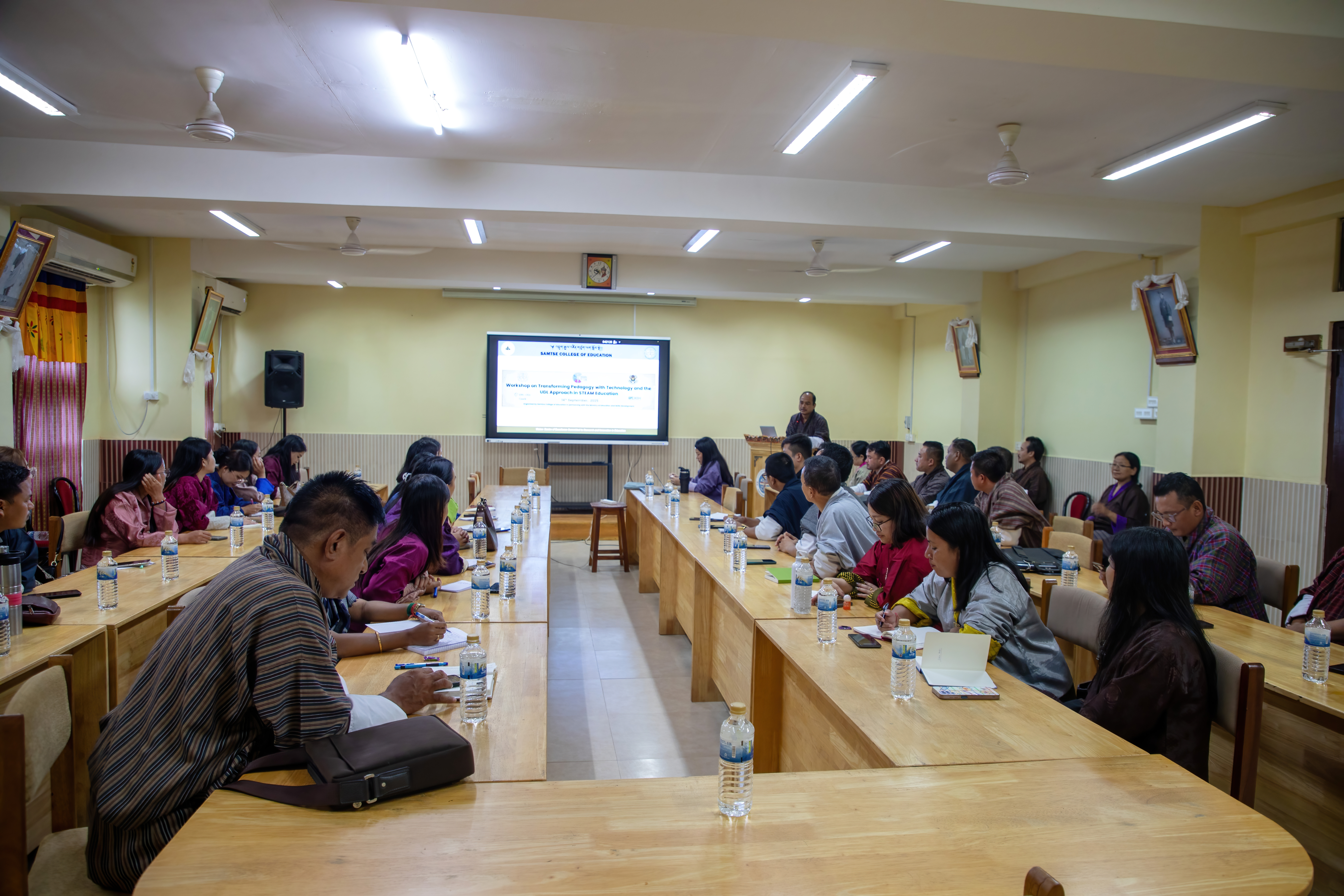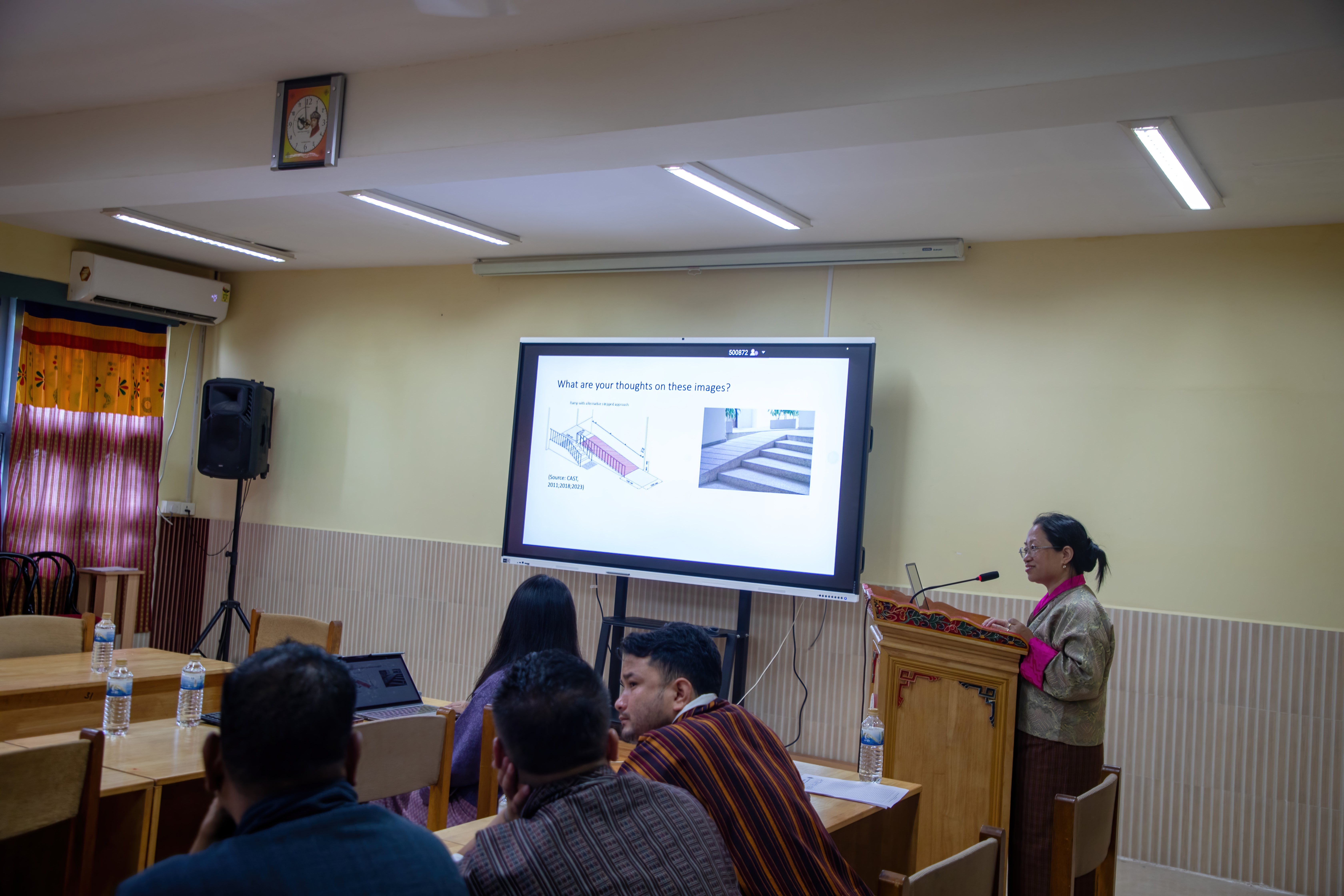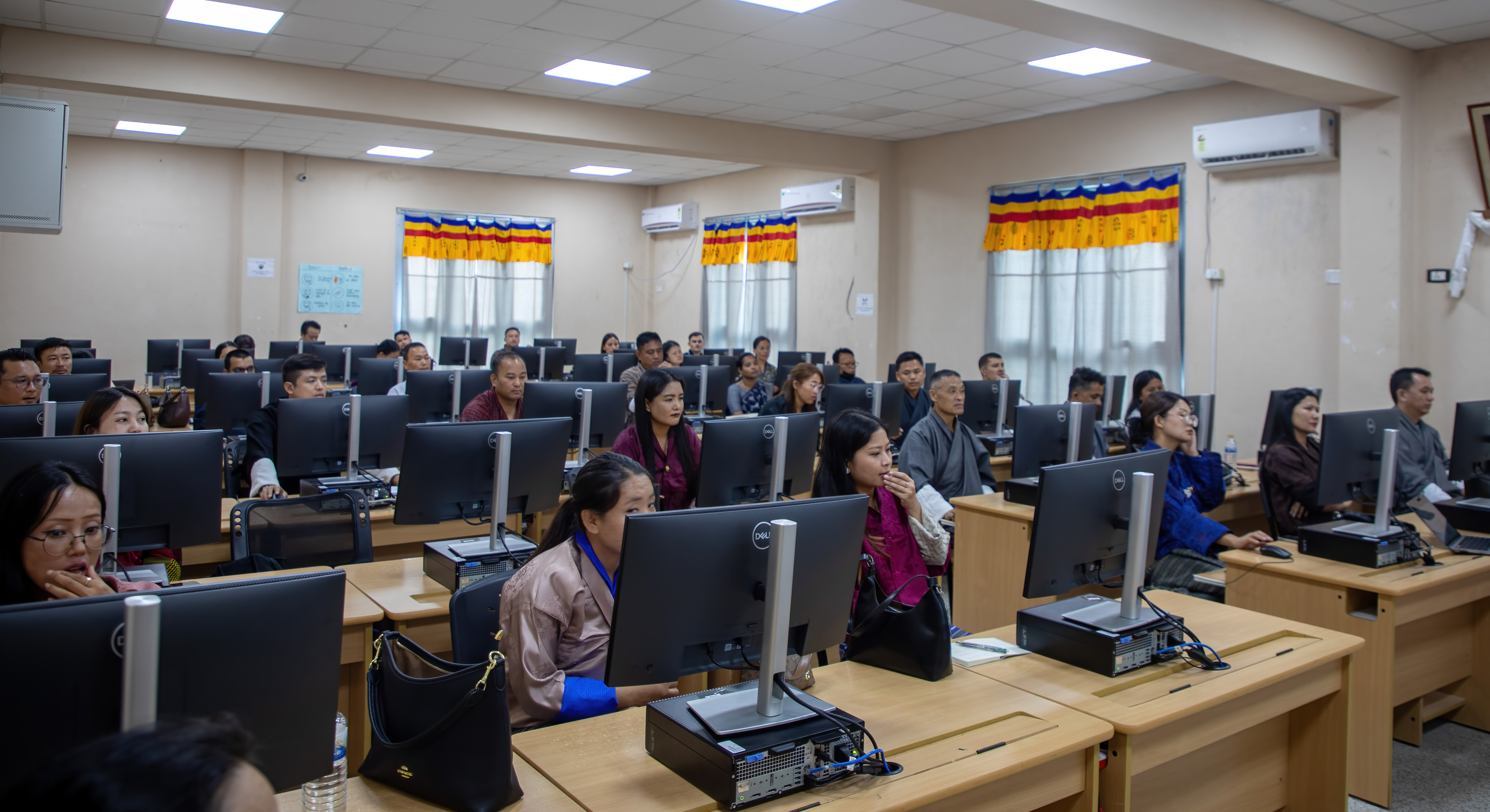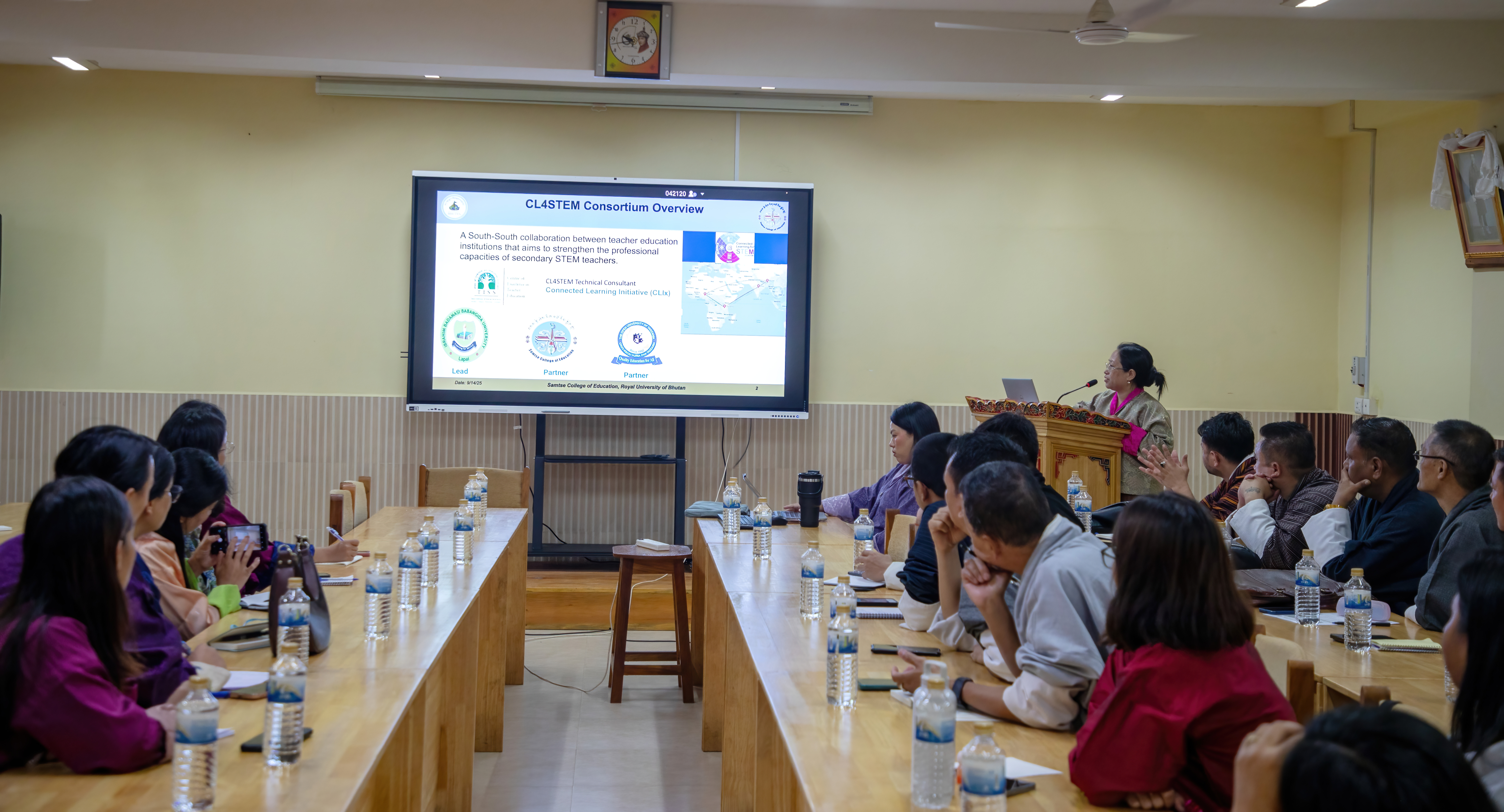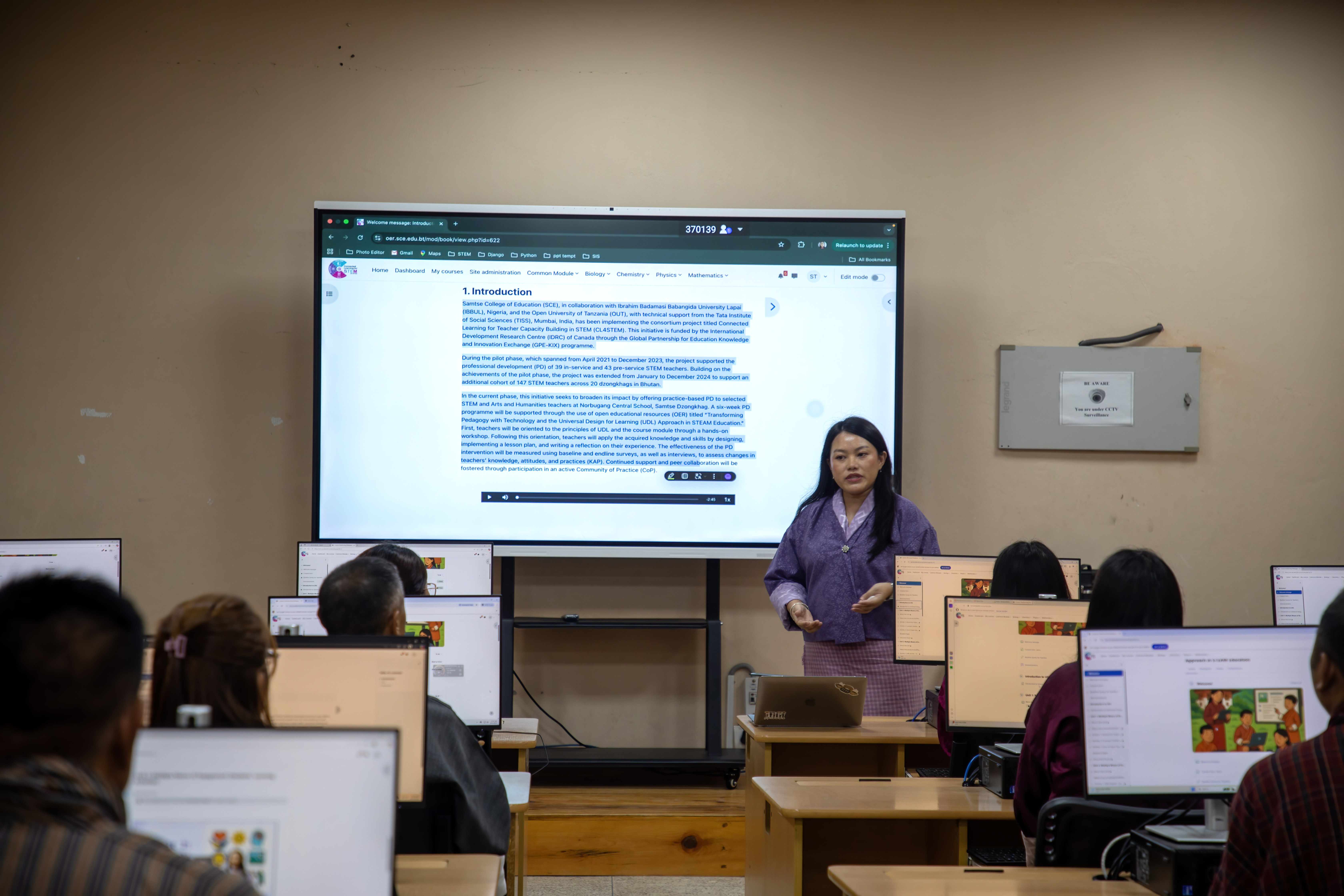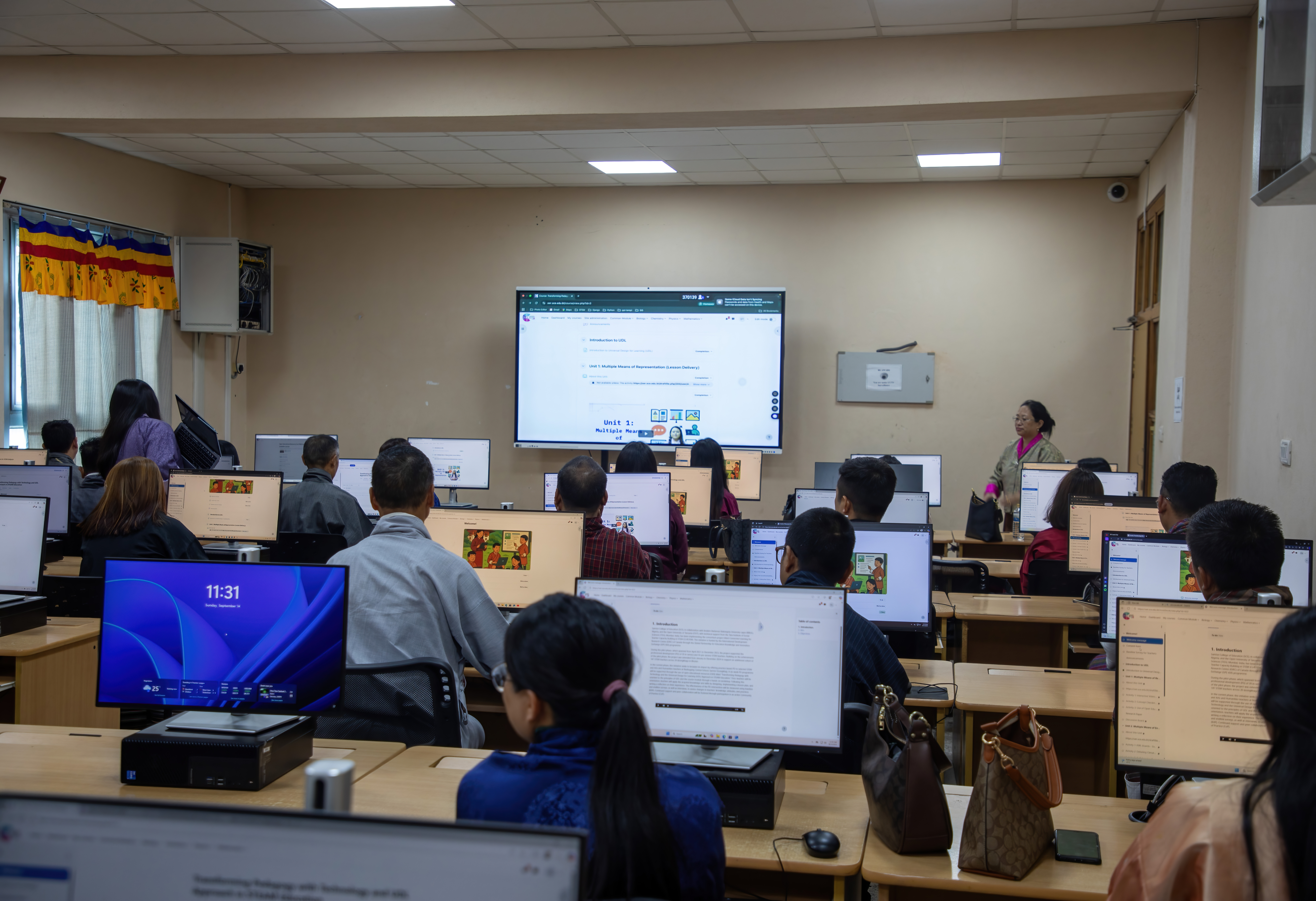Professional Development Workshop on Universal Design for Learning (UDL) and Technology Integration
A professional development (PD) course titled “Transforming Pedagogy with Technology and the Universal Design for Learning Approach in STEAM Education” was launched on 14 September 2025 at Samtse College of Education (SCE). The initiative is part of the Connected Learning for Teacher Capacity Building in STEM (CL4STEM) project, funded by the International Development Research Centre (IDRC), Canada, through the GPE-KIX programme. It is implemented in collaboration with Ibrahim Badamasi Babangida University Lapai (Nigeria), the Open University of Tanzania, and with technical support from the Tata Institute of Social Sciences (TISS), India.
The PD aims to equip teachers with the knowledge and skills to make teaching, learning, and assessment more inclusive, equitable, engaging, and effective using the Universal Design for Learning (UDL) framework alongside technology integration. While the programme originated in STEM education, it has now been adapted to benefit teachers from Arts and Humanities as well.
The workshop was attended by the Principal, Vice Principal, and 33 teachers of Norbugang Central School, Samtse Dzongkhag. Participants were introduced to the three UDL principles, nine guidelines, and 32 checkpoints developed by CAST (http://udlguidelines.cast.org). They also engaged in hands-on practice with technological tools. For content representation, they explored Edcafe, NotebookLM, and interactive videos; for engagement, tools like interactive books, branching scenarios, Quizizz, Canva, Wiki, KWL charts, and H5P; and for expression, interactive videos, Blogger.com, and H5P were practiced.
The PD follows a practice-based model. After the face-to-face orientation workshop, participants will spend six weeks applying UDL strategies and technological tools in their classrooms. They are required to submit one lesson plan and one reflective report as evidence of practice. Faculty members from SCE will monitor implementation to ensure effectiveness. Successful participants will receive certificates acknowledging 30 hours of engagement in the PD.
This PD builds on the achievements of earlier CL4STEM phases. During the pilot phase (April 2021–December 2023), 39 in-service and 43 pre-service STEM teachers were trained through a practice-based model using subject-specific OERs. In the extension phase (January–December 2024), an additional 145 secondary STEM teachers from 20 dzongkhags were supported. Following these successes, SCE has now been awarded an Impact Scaling Grant to expand the initiative to a wider group of teachers, including those beyond STEM disciplines.
By integrating UDL and technology, the initiative empowers teachers to create flexible, inclusive classrooms where content is delivered in multiple formats and students can engage and demonstrate understanding in varied ways. This approach minimises learning barriers, promotes equity, and supports all learners to reach their fullest potential.
Reported by Dr. Reeta Rai
CL4STEM Country Coordinator
